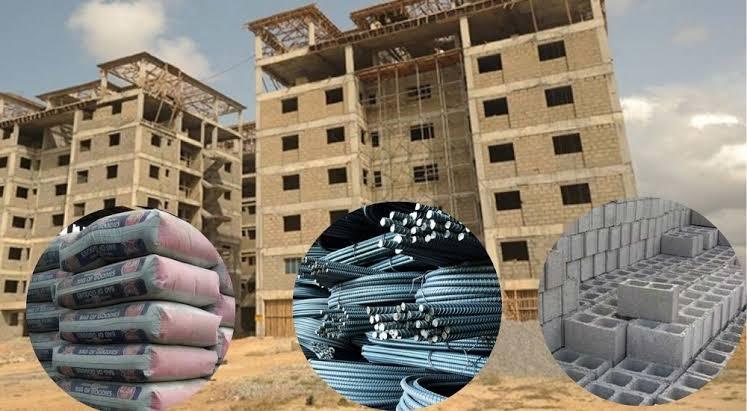Planning to build in Nigeria this year? In 2025, soaring inflation, currency instability, and transportation costs have made building material and labour expenses a major concern. This guide gives you a clear and practical view of the current market prices—so you can budget smart and avoid surprises.
1. Cement
A 50 kg bag of cement ranges from ₦9,000 to ₦10,500, with prices in cities like Abuja and Lagos sometimes touching ₦11,000 due to logistics, brand, and demand factors.
2. Sand
-
Sharp sand (for concrete): ₦30,000 – ₦45,000 per 20-ton truck.
-
Plastering sand (smooth): ₦25,000 – ₦28,000 per 7-ton load.
Some areas report a range of ₦6,000 – ₦8,000 per cubic meter for sharp sand and ₦4,000 – ₦5,500 for fine sand.
3. Gravel & Granite
-
Sharp or crushed stones: About ₦8,000 – ₦10,000 per cubic meter.
-
Granite (20-ton cargo):
-
¾-inch or ½-inch: ₦80,000 – ₦90,000
-
¼-inch: ₦70,000 – ₦75,000
-
Stone dust: ₦50,000 – ₦55,000
-
4. Steel (Reinforcement Bars)
-
Per kilogram: ₦700 – ₦900.
-
Per ton: ₦620,000 – ₦720,000, reflecting roughly a 30% rise from 2023.
5. Blocks and Wood
-
Concrete blocks (9-inch): ₦230 – ₦330 each.
-
Timber: ₦20,000 – ₦50,000 per cubic meter.
-
Plywood sheets: ₦5,000 – ₦8,000 each.
6. Labour Costs (Daily Rates)
In major cities:
-
Bricklayers: ₦10,000 – ₦12,000/day in Lagos; slightly lower in Abuja and Kaduna.
-
Electricians: ₦9,500 – ₦11,000/day.
-
Crane operators: ₦18,000 – ₦22,000/day.
7. Why Prices Are Climbing
-
Inflation and a weaker naira are eroding purchasing power.
-
High diesel costs increase production and transport expenses.
-
Tariffs, import delays, and supply chain bottlenecks further drive up prices.
-
Speculative pricing and panic buying are adding pressure too.
8. Smart Budgeting Tips
-
Buy materials in bulk before costs rise further.
-
Compare regional suppliers—materials from production hubs in northern states can be cheaper.
-
Factor in labour variability, depending on skill levels and location.
-
Consider prefabricated options or alternative materials to reduce both wastage and cost.
Conclusion
In 2025, building in Nigeria is increasingly expensive—but knowing the real numbers empowers you to budget effectively. Cement, steel, sand, and blocks are all significantly pricier than before, and labour costs reflect rising demand.











